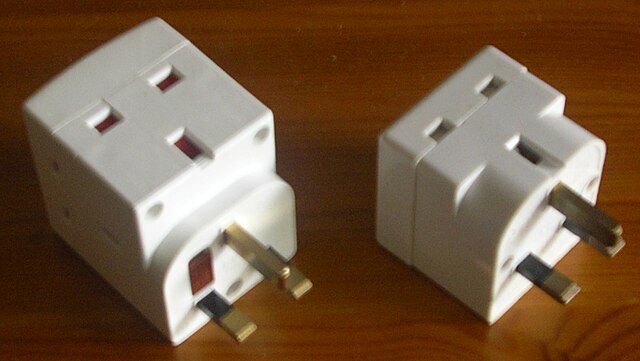Frequency converters are all around us. Although we may never see, hear or touch them, they are involved in our daily lives and are essential to keeping our electronic world spinning. Unless you’re an industry specialist, or a tech enthusiast who’s done his homework, you may not know exactly what frequency converters are, and why they are vital to powering industry. This article aims to explain it all, without too much confusing jargon!
Current Affairs

Electricity flows in two different ways; with direct current, or alternating current. You may have heard of the famous rock band AC/DC – their name strangely comes from electrical current! Our appliances function with alternating current, our hair straighteners, and cookers, everything we plug into the walls of our house. Alternating current is called so because the electricity flows forwards and backwards, unlike direct current which goes in one direction. There are converters that turn AC into DC and vice versa, however frequency converters only deal with Alternating current.
The frequency of alternating current is basically how many times it changes direction, and how often. In a nutshell, a frequency converter or a ‘frequency changer’ changes the alternating current from one frequency to another.
High Frequency
Our electronic world operates with all these different frequencies for the many different jobs we need power for. Frequency converters are so important to our homes and industries around the world that we simply could not function without them! Converters make sure that the power coming from a source, or another location is suitable for its application. While most converters are around us supplying our businesses and cities with usable power, they are also used in a huge variety of ways. In fact, specialist companies work hard to manufacture and produce high quality frequency converters that can be used around the world.
Frequency changers aren’t just a one trip pony though; they can also control the speed of motors, pumps and fans. They are also a great way to save energy as they make it possible to know that you are only supplying the right frequency of current that you need, and none is going to waste, or falling short!
Military

http://www.flickr.com/photos/thenationalguard/4563413616/sizes/m/
So how are converters so useful to industry? What industries really use them and benefit from their abilities?
Our first industrial application is the military. This application has very specific needs when it comes to their high tech arsenal. Vehicles and equipment need very specific currents and frequencies, often many different amounts to different parts of one machine.
Specialist converter companies produce their technology up to the military’s standards, too. We know that the equipment in the midst of a warzone might be under tougher conditions than those of our living rooms. Solutions to give them resistance shock, vibrations, and extreme temperatures are available. Impressive!
Aerospace
It isn’t just the army that find frequency converters essential to their operation, aerospace and airline industries also find them extremely beneficial. Those of us lucky enough to have flown first class will know that you can plug in your laptop or phone charger, watch an in-flight film on your personal screen while you dim the lights above your electric chair. All these different parts function perfectly while the entire plane’s electronics to keep it in the air and on course are running smoothly. Frequency converters are working under the hood to deliver the right frequency for every need.
From a single passenger plane to a mammoth 747, frequency converters are even vital during the manufacture of the aircraft, long before they are in operation! Building a plane needs a lot of power, motors, different frequencies and a lot of juice. Heavy duty currents come from a supplier, and converters will help it all to do its job efficiently.
Healthcare
The electronic systems in our hospital equipment today are vital to the lives of millions of patients. Nothing is more important than life, and frequency converters allow this critical care to flow the way it should. Many people are aware of hospitals being equipped for loss of mains power. Their backup generators work hand in hand with converters, to distribute power to the integral machines and devices that keep our friends and families alive.
Having seen the variety of applications, and covered the basics of how converters work, it is plain to see why they are so useful in powering industry. It is strange to think how something so important could be so seemingly incognito. We may never fully understand the maths, physics and science behind them, but thankfully the professionals that supply them do. Frequency converters may even play their part in your industry!
An article by Matt Scott.
Leave a Reply